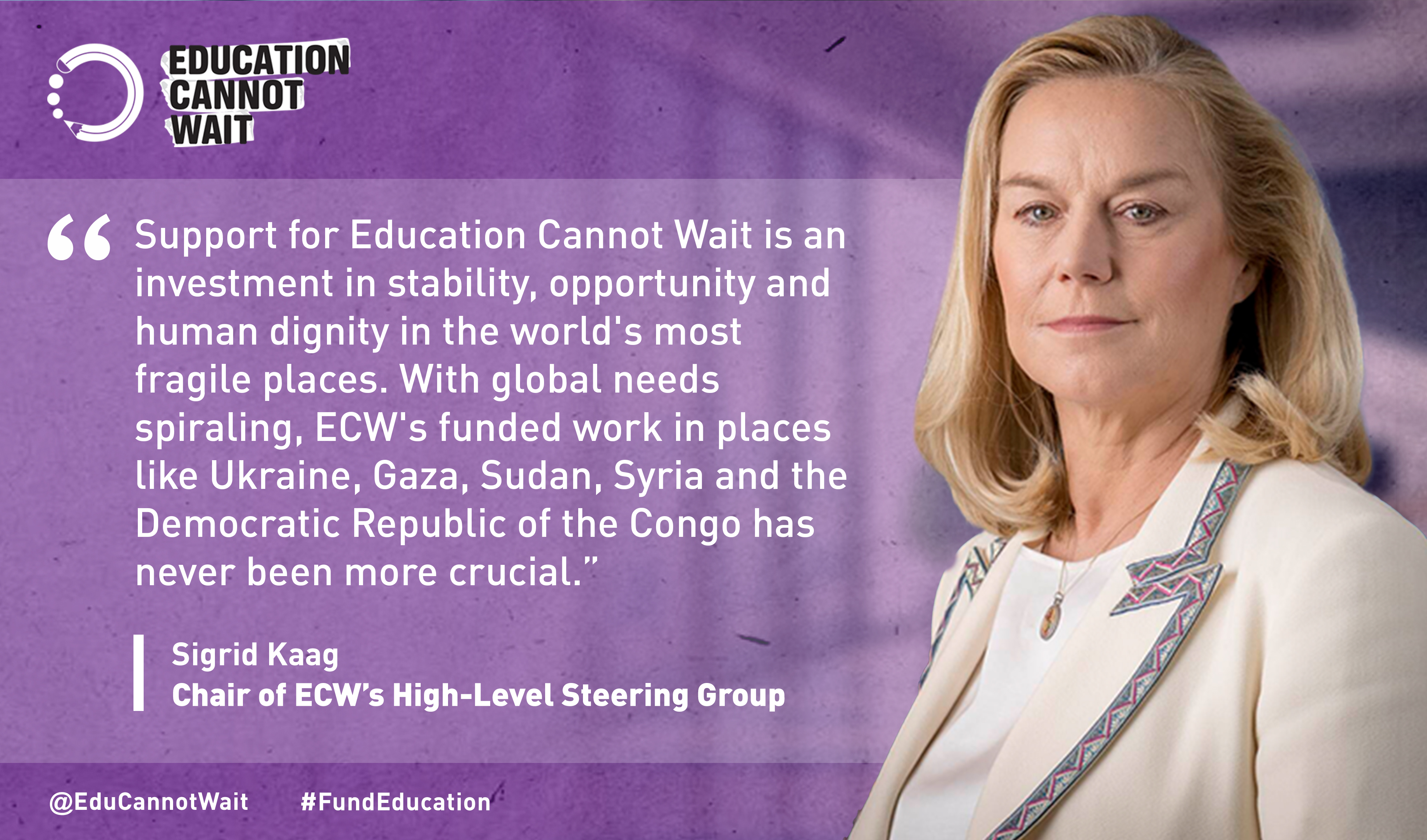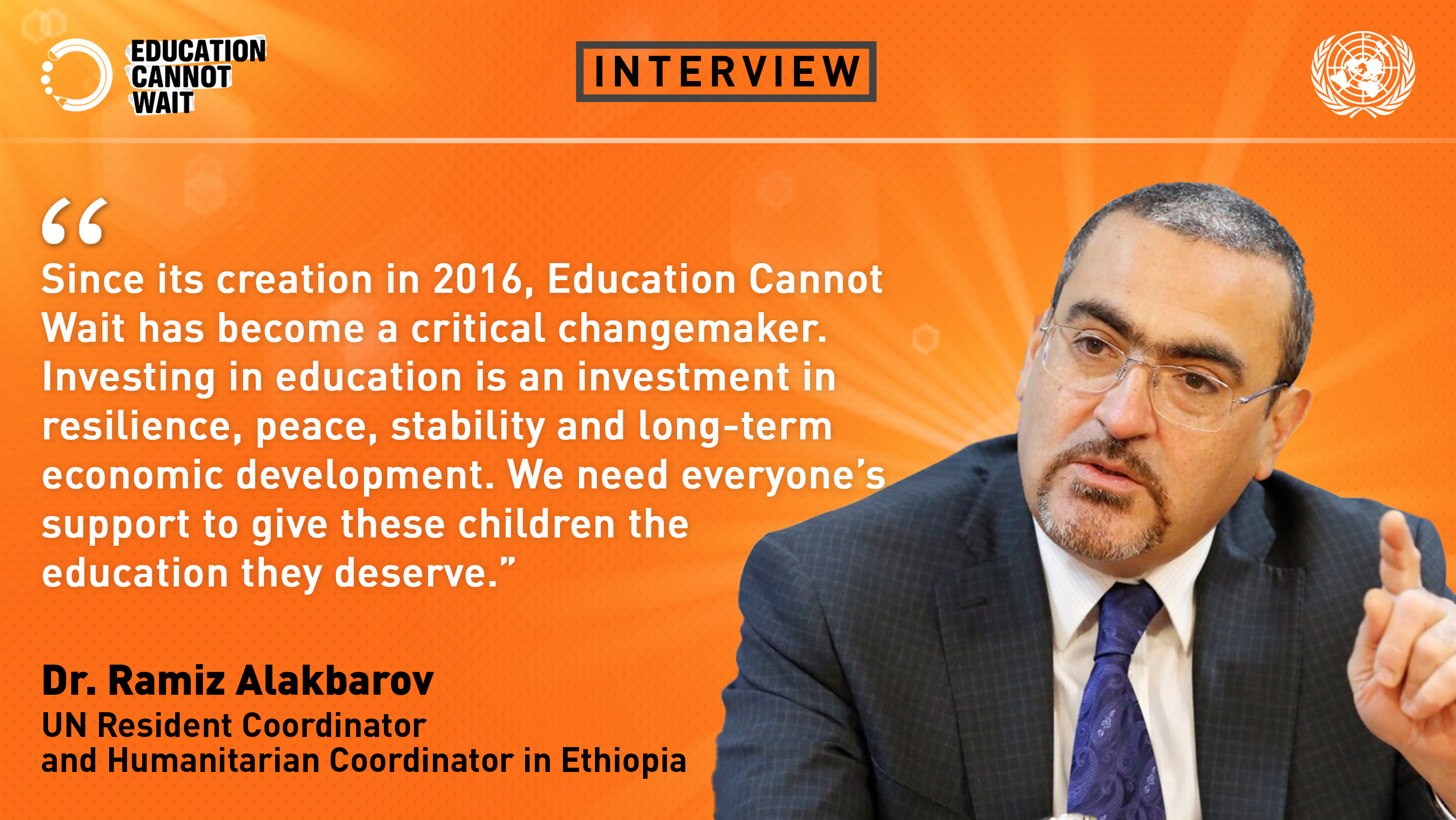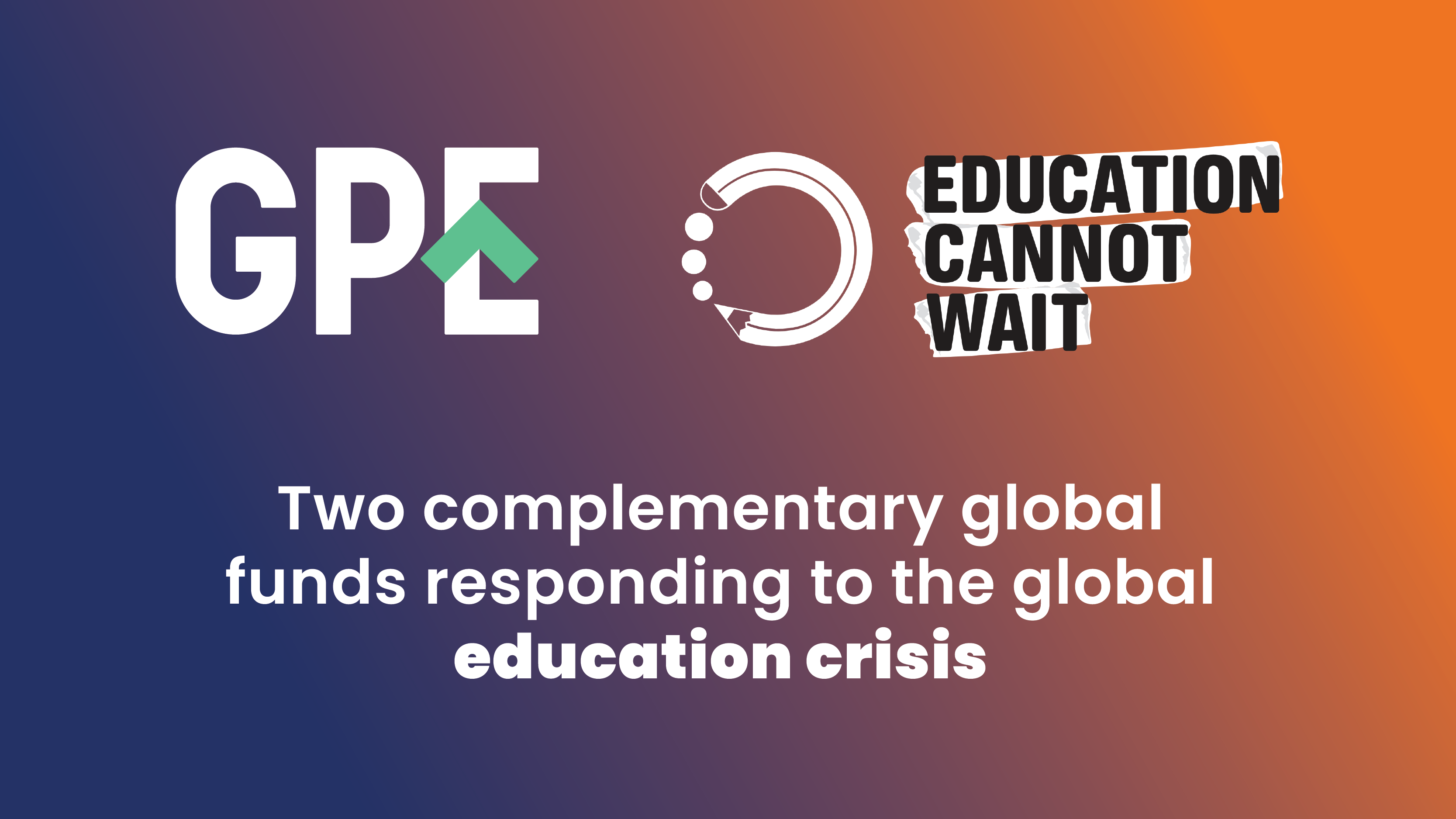Education Cannot Wait Interviews Raïssa Malu, Minister of State, Minister of National Education and New Citizenship for the Democratic Republic of the Congo
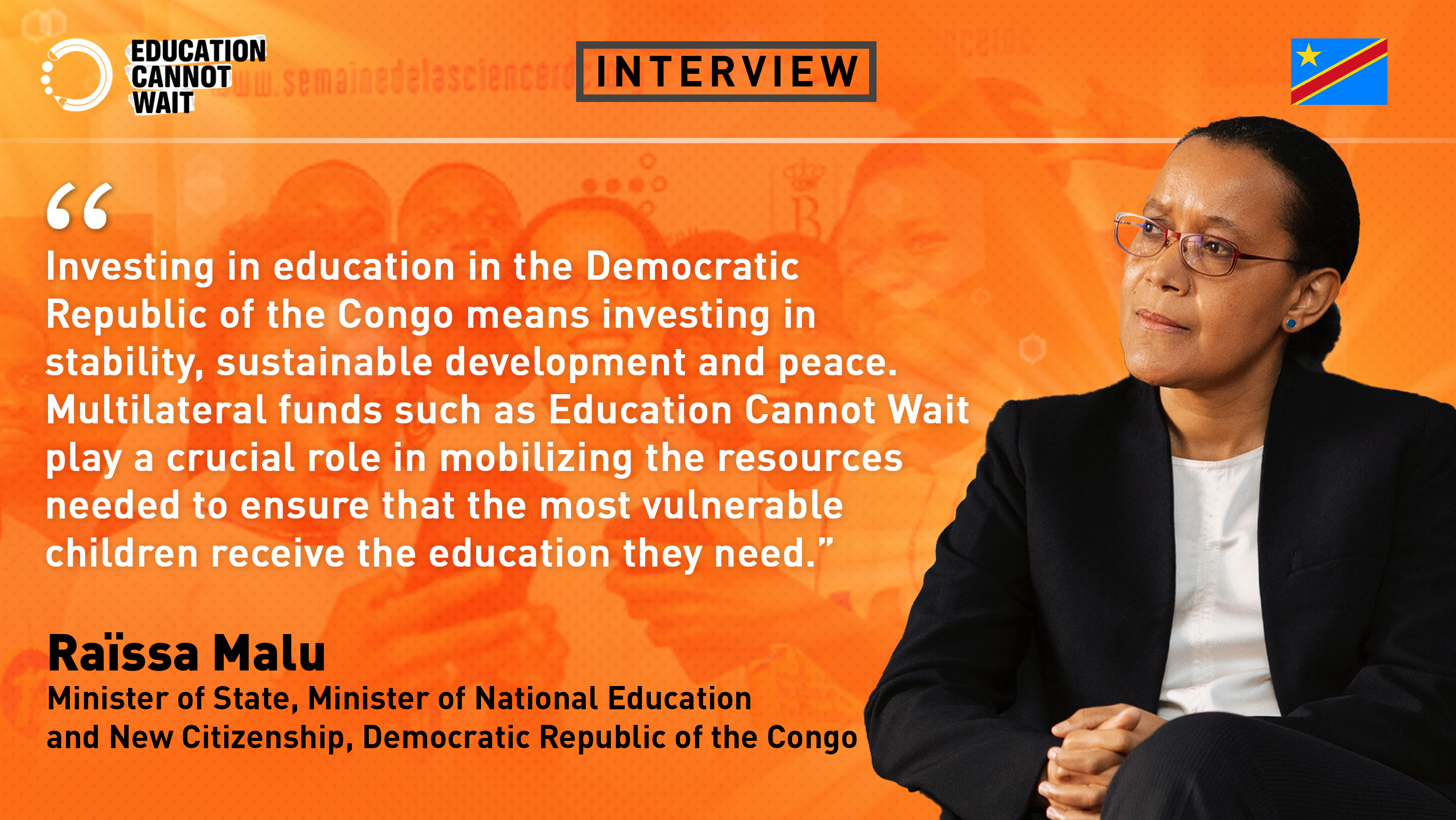
Raïssa Malu is Minister of State, Minister of National Education and New Citizenship for the Democratic Republic of the Congo. She is a physicist by training, professor and author, and is world renowned for her engagement in education, especially in the fields of science, technology, engineering and math.
ECW: Armed conflict, forced displacement and climate change are putting pressure on educational resources in the Democratic Republic of the Congo. Why should world leaders and donors from the public and private sectors invest in educating children affected by the crisis in the country, particularly through multilateral funds such as Education Cannot Wait (ECW)?
Raïssa Malu: Education is a fundamental right and an essential means of protecting vulnerable children, particularly in crisis situations. Investing in education in the Democratic Republic of the Congo means investing in stability, sustainable development and peace. Children affected by conflict are the future of their communities and of the country as a whole. Every dollar invested in their education is a step towards a more stable and prosperous future. Multilateral funds such as ECW play a crucial role in mobilizing the resources needed to ensure that the most vulnerable children receive the education they need. They enable a collective, coordinated and effective response, bringing together the efforts of government, non-governmental organizations and private actors to build lasting peace.
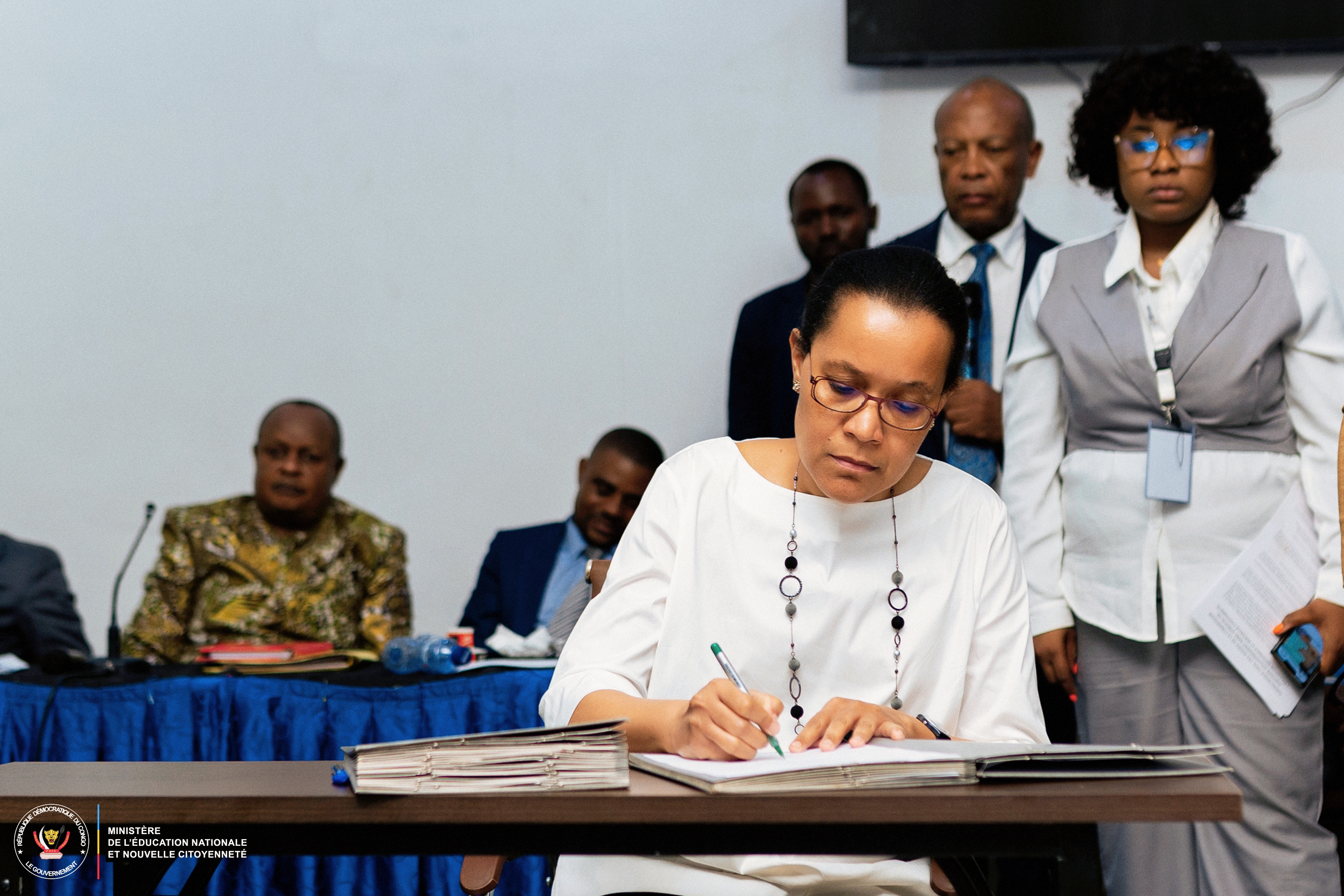
ECW: Despite the government's policy of free primary education, over 7 million girls and boys in the Democratic Republic of the Congo are still out of school. Indirect and opportunity costs remain a heavy burden for the poorest households. How are you planning to help improve access to high-quality learning outcomes, both informal and formal, with the support of partners in the field?
Raïssa Malu: Free primary education, which was rolled out by the President of the Republic and Head of State, His Excellency Mr Félix Antoine Tshisekedi Tshilombo, during his first five-year term, is an important achievement that needs to be consolidated. This programme is a major step forward, but we recognize the persistent obstacles posed by indirect costs. We are planning measures to ease this burden, including targeted scholarships and subsidies for the most vulnerable families. We also promote innovative educational solutions, incorporating informal and after-school education programmes to reach children outside the formal system. The digitization of education and the development of distance learning are also priorities, since they offer viable alternatives for overcoming geographical and economic constraints. In addition, we are stepping up our efforts to raise community awareness of the importance of girls' education, breaking down cultural barriers and promoting specific programmes to reintegrate and retain them in the education system.
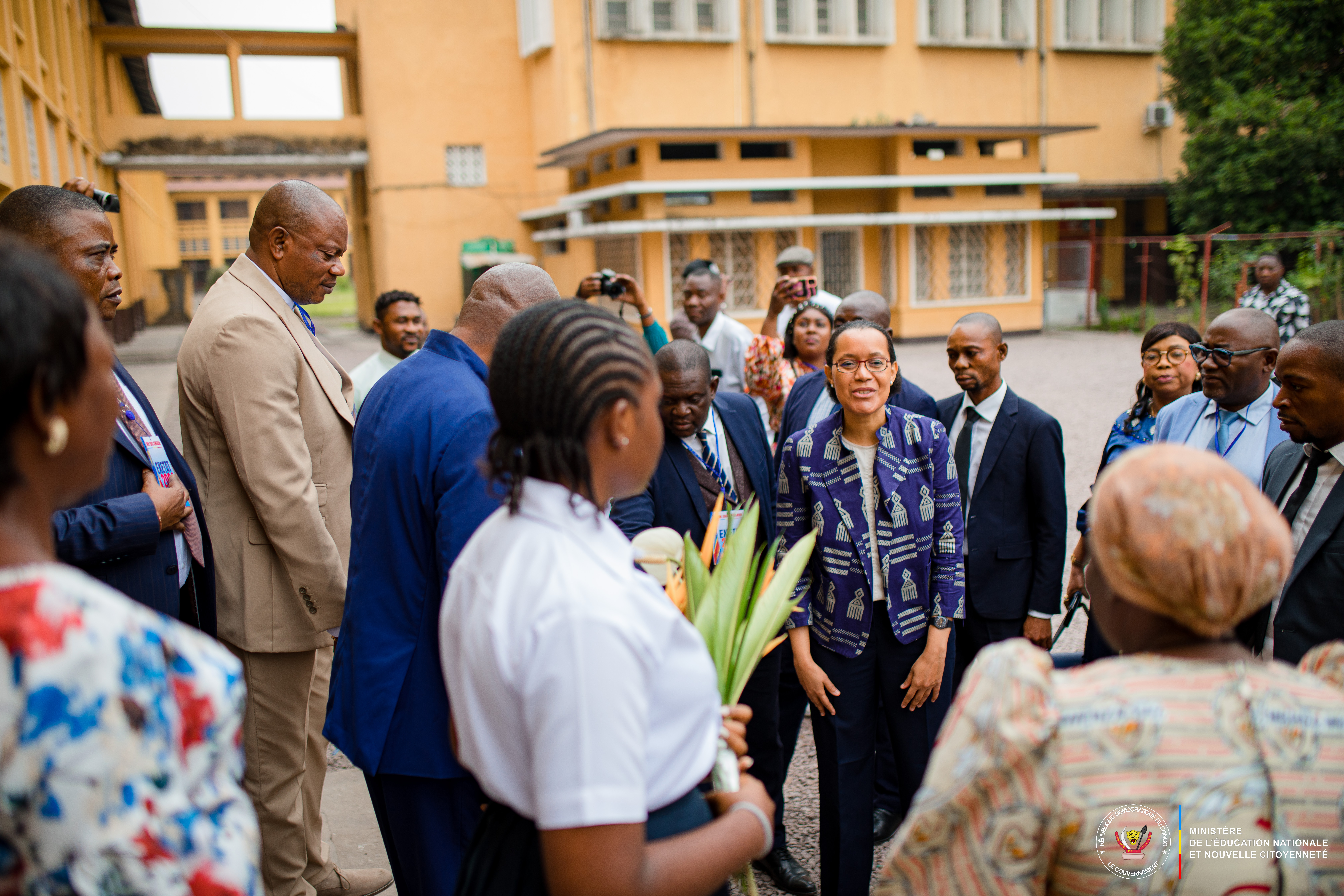
ECW: You are a fervent, energetic and tireless advocate of girls' education. Half of all girls aged 5–17 years are out of school in the Democratic Republic of the Congo. What risks do they face and how can we offer them better learning pathways and a brighter future?
Raïssa Malu: Girls' education is a question of social justice and an essential pillar of sustainable development. The risks faced by girls who are out of school, such as early marriage, unplanned pregnancy and violence, jeopardize not only their future, but also that of our nation. Our educational reforms include specific initiatives to encourage girls to pursue studies in Science, Technology, Engineering and Mathematics (STEM), by making these subjects more accessible and appealing. We also promote holistic education by incorporating artistic and cultural activities, to enable girls to develop their full range of talents. These actions are supported by scholarships and the creation of girls' clubs in secondary schools to nurture their development.
ECW: As Minister of Education, what are your priority interventions for education in emergency situations at a time when the eastern regions of the Democratic Republic of the Congo are facing a high-intensity, multidimensional crisis that has had a disastrous impact on access to learning and its quality and has created protection problems for children and adolescents (girls and boys alike)?
Raïssa Malu: Our priority in the eastern regions is to ensure the continuity of education, even in crisis situations. We will set up temporary learning spaces that also serve as safe havens for children. Teacher training will be adapted to include skills in trauma management and child welfare. In addition, we plan to introduce psychosocial support programmes to help children overcome traumatic experiences. We will also mobilize resources to ensure that even temporary schools have hygiene and health kits in order to reduce barriers to schooling, especially for girls. Our approach is holistic, combining school education, child welfare and community resilience-building.
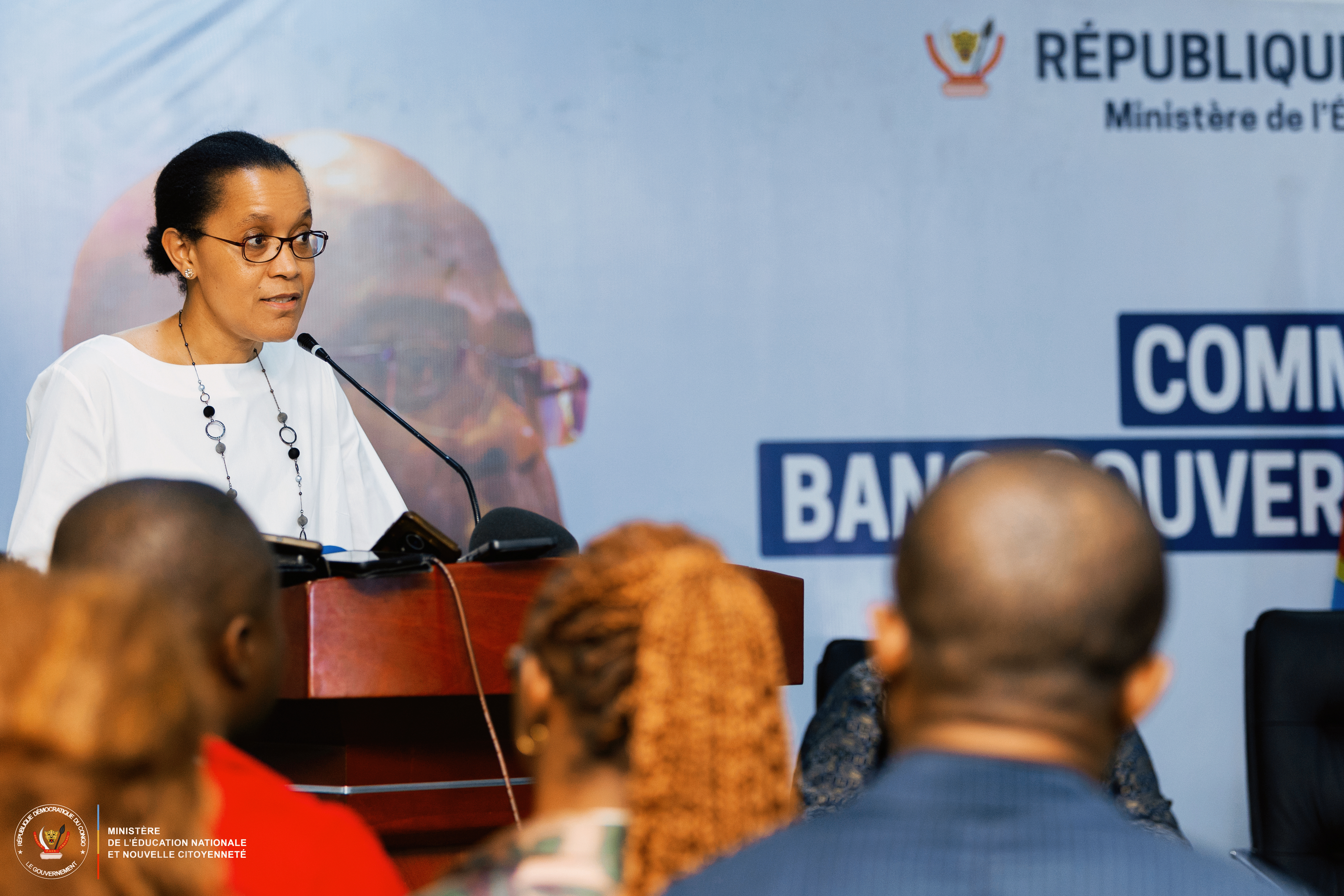
ECW: We all know that 'readers are leaders' and that reading skills are essential to every child's education. What are the three books that have most influenced you personally and/or professionally, and why would you recommend them to others?
Raïssa Malu: Three books that have influenced my vision of education and social transformation are:
1. Creative Schools – The Grassroots Revolution That's Transforming Education by Ken Robinson: this book offers a bold reflection on the need for profound reform of our education systems. Robinson advocates an education that values creativity, individuality and lifelong learning – essential concepts to prepare our young people for a constantly changing world.
2. La guerre des intelligences à l'heure de ChatGPT by Laurent Alexandre, which explores the impact of artificial intelligence on education and human development. This book is particularly relevant in our current context, where digitization and new technologies are revolutionizing our teaching methods and the skills needed for the future.
3. Alice in Quantumland by Robert Gilmore is a fun and accessible introduction to the complex concepts of quantum physics. It illustrates the importance of making science accessible and captivating, especially for young people, to get them curious about and interested in STEM subjects. My dream is to write or publish a similar popular book, but based on tales and stories from Africa.
For me, these books offer essential insights into the evolution of education, the challenges posed by new technologies, and how we can prepare future generations to meet these challenges. They make interesting reading for anyone committed to transforming education.

